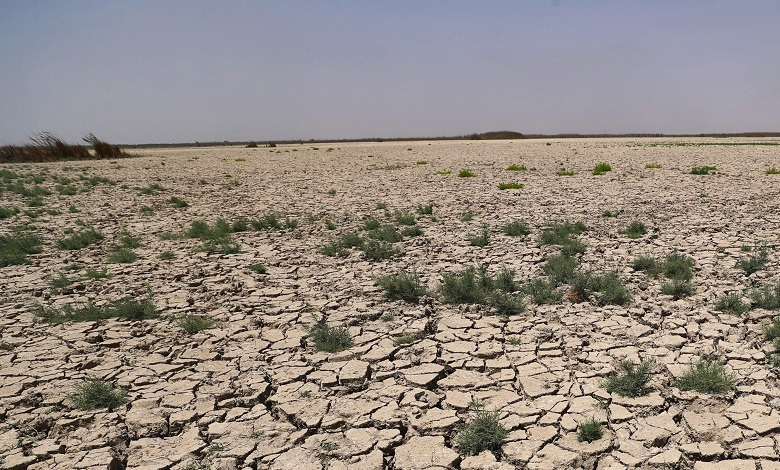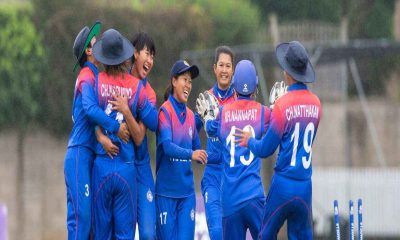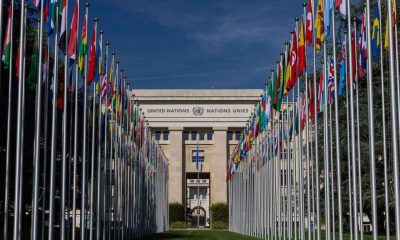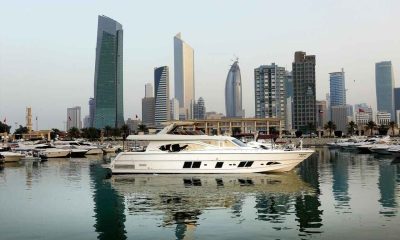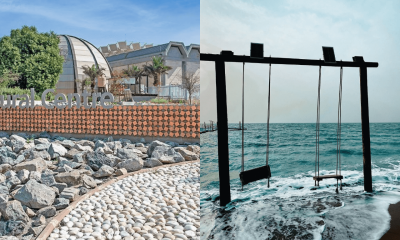In addition to having exceptional natural beauty, the State of Kuwait—which is well-known for its sweeping deserts and parched terrain—is also beset by a persistent environmental problem: sand and dust storms. These weather phenomena, referred to locally as “Shamals,” regularly ravage the nation, upsetting daily routines, harming people’s health, and having an impact on a range of industries, including infrastructure and agriculture.
The Kuwait Fund for Arab Economic Development has recently offered to fund a project that aims to lessen sand and dust storms within the State of Kuwait in an effort to address this problem. This initiative demonstrates the country’s dedication to resolving a long-standing environmental issue.
Kuwait’s Ongoing Battle
Sand and dust storms that arise and blow over the region due to various natural and human factors expose the State of Kuwait and the countries on the Arabian Peninsula to high levels of dust. These factors, in addition to environmental pollution and climate change, also negatively impact respiratory health and general health.
Additionally, dust has detrimental effects on the economy and society because it can close airports and ports, interfere with air and sea travel, and cause problems for the transportation industry. Additionally, dust may have a detrimental effect on livestock and agricultural productivity as well as cause crop damage that would have a negative financial impact. Lastly, dust exposure may increase health expenses, including the previously mentioned diseases linked to extended dust exposure, driving up health spending to the point where the State’s budget allotted for the health sector would be depleted.
According to the Meteorological Administration’s climate monitoring statistics, the average number of dust days in the State of Kuwait over a year is approximately 137 days, based on a study conducted between 2000 and 2021. These days, there are three different types of dust storms: suspended, blowing, and rising. They are particularly common in the summer months of May, June, July, and August due to eight local and external wind tracks that generate 60 tonnes of dust per square kilometre of dust on the State of Kuwait. This causes health and environmental issues and is estimated to cost the country KD 190 million annually in losses.
Thus, in collaboration with the United Nations Human Settlements Programme (UN-HABITAT), a number of State of Kuwaiti government agencies, including the Kuwait Fund for Arab Economic Development, the Meteorological Administration of the Directorate General of Civil Aviation, the Kuwait Institute for Scientific Research, the Environment Public Authority, the Petroleum Corporation, and Kuwait University, supported the project’s initial phase, “Adaptation and Resilience to Combat Transboundary Sand and Dust Storms in the State of Kuwait.” The project’s goal is to stabilise and treat the soil in two of the areas where sandstorms originate: the governorates of Dhi Qar and Muthanna, which are situated in Iraq between the Tigris and Euphrates rivers and 250 kilometres from Kuwait’s border. These governorates have an area of 150 to 200 square kilometres.
The first phase of the project will cost KD 4 million over five years and be financed by Kuwait Fund for Arab Economic Development. The project is expected to reduce dust over Kuwait by over 40%. All humans must work together to reduce dust locally, regionally, and globally and adopt sustainability and environmental conservation. Such cooperation will yield preliminary results in monitoring climate and weather in Kuwaiti cities to determine the UN-Habitat project’s positive impact on transboundary dust. To identify dust storm-prone Kuwaiti cities, cooperation, climate studies, and data must be shared.
Kuwait Fund’s Pioneering Support
In order to finance the project, the Kuwait Fund for Arab Economic Development and the United Nations Human Settlements Programme (UN-Habitat) signed a grant agreement on October 27, 2021. Numerous agreements for technical cooperation have been inked by the program’s partners.
It should be emphasised that the actual implementation of the preparatory works started in the first quarter of 2023. During this time, partner agencies in the Republic of Iraq and the State of Kuwait worked together to gather the technical and fundamental data needed to identify storm hotspot locations for study and analysis. The implementation of the project is being done correctly.
The project’s three-pronged approach was introduced in February 2023. It enhances our understanding of the factors that lead to sand and dust storms, their effects on public health, and the necessary preventative and mitigating actions. Second, it works hard to rebuild ecosystems in the places where sand and dust storms originate. Thirdly, and perhaps most importantly, it contributes to the mitigation of the underlying causes of sand and dust storms and strengthens the resilience and capacity of local authorities and the most vulnerable communities in Southern Iraq to adjust to the effects of desertification.
The Kuwait Fund for Arab Economic Development and the United Nations Human Settlements Programme (UN-HABITAT) seek to improve living conditions in Kuwait and the surrounding area by lowering the risk of sand and dust storms. They also hope to include other Gulf nations that are impacted by sandstorms in order to broaden the scope of this regional initiative to combat desertification and lessen its negative effects.
In a groundbreaking move, the Kuwait Fund for Arab Economic Development has pledged its support to a project aimed at tackling the persistent issue of sand and dust storms.
A Multifaceted Approach
The project’s approach is multifaceted, reflecting the complexity of the challenge it seeks to address:
1. Meteorological Insights: A central aspect of the project is the study of meteorological conditions that give rise to sand and dust storms. Researchers are closely examining weather patterns, wind speeds, and atmospheric conditions to better predict and prepare for these events.
2. Environmental Restoration: To combat desertification and soil degradation, the project explores methods for environmental restoration. This includes soil conservation techniques and initiatives to promote sustainable land use.
3. Health and Public Awareness: Public health is a paramount concern. The project emphasizes the development of strategies for protecting public health during sand and dust storms, including early warning systems and the distribution of protective gear. Additionally, educational campaigns aim to raise public awareness about the risks and precautions associated with these storms.
4. Infrastructure Resilience: The project recognizes the vulnerability of infrastructure to sand and dust storms. In response, it explores strategies to enhance the resilience of roads, buildings, and energy facilities to minimize disruption during these events.
Kuwait’s proactive approach reflects a commitment to safeguarding public health, enhancing infrastructure resilience, and preserving the environment. As this project unfolds and its findings are put into action, it is hoped that Kuwait will find itself better equipped to face the persistent issue of sand and dust storms, ultimately creating a safer and more prosperous future for its people.
Read More: Staying Connected at 35,000 Feet: Qatar Airways’ Starlink Revolution
